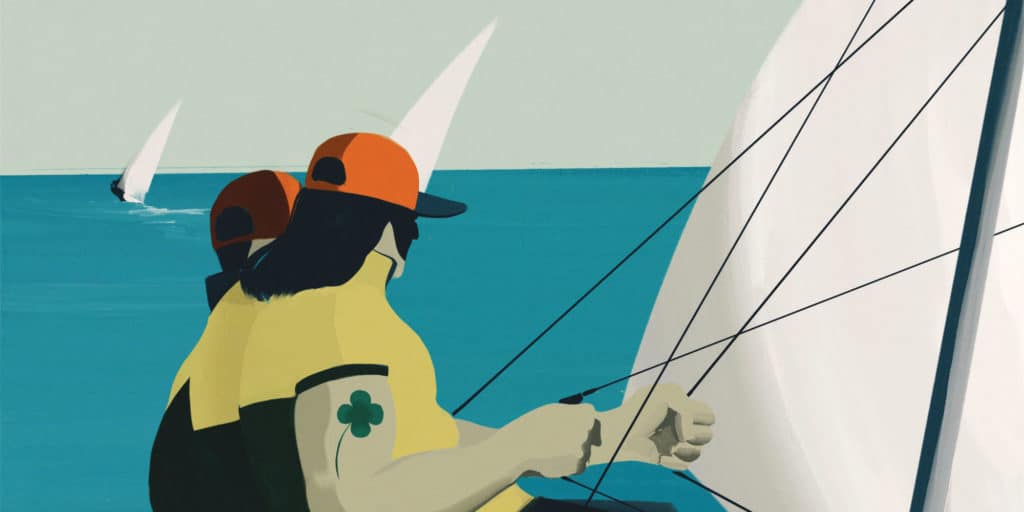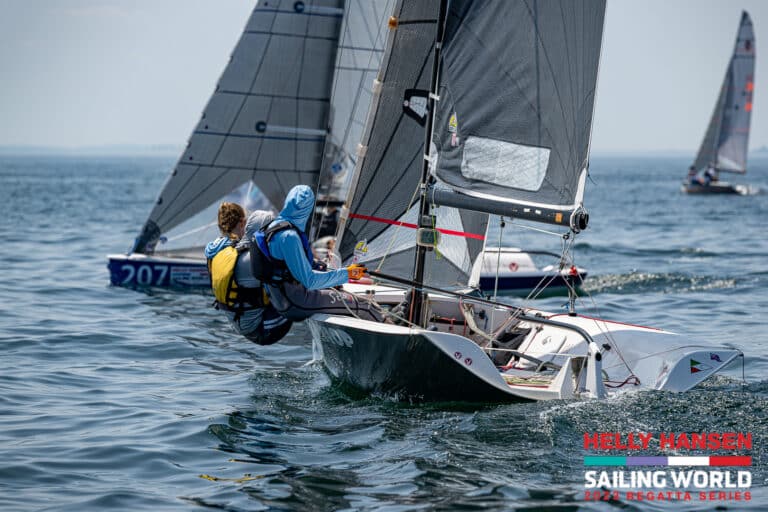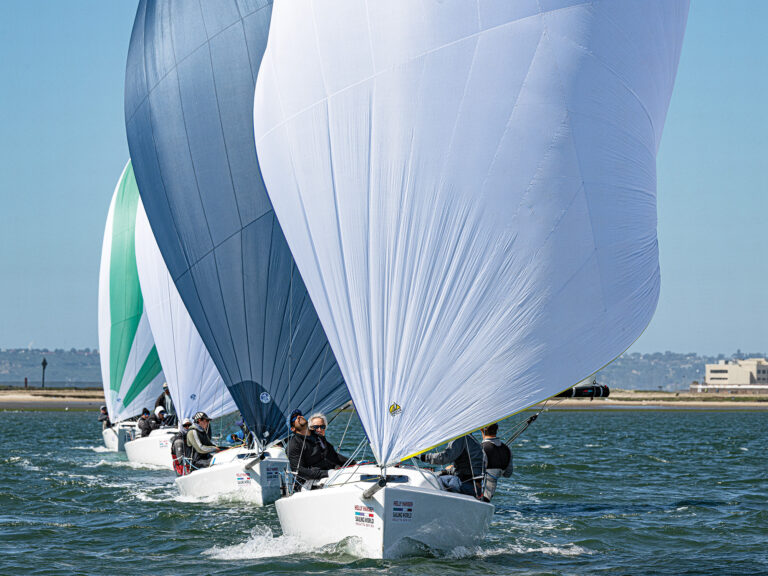
Things are looking bad for us. Then, it’s almost too good to be true. The breeze is dying as we near the finish of the seventh race of the 2001 49er Worlds on Lake Garda. We are well-positioned in the top five, with some really good teams behind us, but it looks as though the time limit will expire and the race won’t count. Our bad luck.
But the race committee doesn’t abandon the race when it seems they should, and it records everyone’s finishes. The race is later protested, and at the hearing, it’s determined the race will stand because of some obscure appeal. All of a sudden, because of this surprise ruling, we are winning the world championship.
Our bad luck is now good luck, and we had no hand in it.
A similar thing happens a few years later, at the 2005 Melges 24 Worlds. We’re going really well in the breeze, but not so fast in the light. We’ve carefully built a series lead to carry into the last day. We just need to beat the Italians, the light-air specialists. There’s only one problem: The breeze is light and getting lighter. Two races are scheduled. The Italians win the first. We finish 12th. Our lead is now down to two points, with one final light-air race to go. The breeze continues to die until racing is abandoned altogether. Again, a stroke of good luck is instrumental in winning a major championship. Or is it bad luck for the other teams?
Luck is so ingrained in our sport that it impacts nearly every aspect, but luck is not destiny, and it rolls both ways equally over time. It’s possible, however, to get so good that you are superior to other teams, and thus able to win, even if you don’t get a few breaks. This is what all top sailors strive for: to create superiority sufficient enough to overcome small setbacks. This attitude was adopted by Paul Elvstrom and, more recently, by Ben Ainslie in their individual pursuits of Olympic medals. The Olympics is a long and difficult regatta that requires sailors to withstand random bouts of misfortune in order to triumph. However, for most mortals, our luck has a more substantial effect on how we do.
Good luck is often created by better speed, tactics and boathandling. And so-called bad luck is sometimes an easy excuse for poor preparation or execution. Yet, even in the fairest conditions, there are many factors we cannot control, factors that have a significant impact on each race. Consider the randomness of running over a large plastic bag or debris not visible below the surface or sailing into a big set of powerboat waves at a critical moment in the race. In a series, these unpredictable events will tend to even out, and in a long series, the best team will usually win. In a close series with evenly matched teams, however, the one that gets more “breaks” will triumph. Trust me, I’ve been on both sides many times.
One thing we can control is how we handle the breaks that come our way, both good and bad. Step one is acceptance. It’s helpful to admit when we get a break, or to acknowledge someone else’s misfortune, because we’re then more realistic about the conditions or our performance. Otherwise, we can be fooled into taking the wrong lesson. Likewise, when we get thrown a curveball. If we base our future decisions on this one “lesson,” we will probably misdiagnose the situation, overreact and make more mistakes in the future.
Good sailors continue to make rational and intuitive decisions, even after something unusual happens. Many of us rely too much on the very recent past when making our next move; thus, we adjust our decisions based on an unusual or random event.
There is a doctrine in behavioral psychology called “regret avoidance.” It seems most people are so afraid of repeating mistakes of the past that they bias their actions toward avoiding the regret of a repeated mistake. “I’m not going to the left side ever again after getting burned over there the last time.” But if it was a one-time event that caused the left to be unfavored, and the left is still otherwise favored, this regret bias will cause you to make a mistake in the next race as well.
One final point regarding luck: It is easy to think that we are only as good as our last race. But as we know, we will have races that are uncharacteristically bad for random reasons, and vice versa, but we are never as bad as our worst race, nor are we as good as our best race. The truth is always in between. If we can keep an even keel regarding our confidence and self-esteem, we can sail consistently and enjoy it more. Maybe even laugh every now and then when Lady Luck decides to throw a bad card our way.









